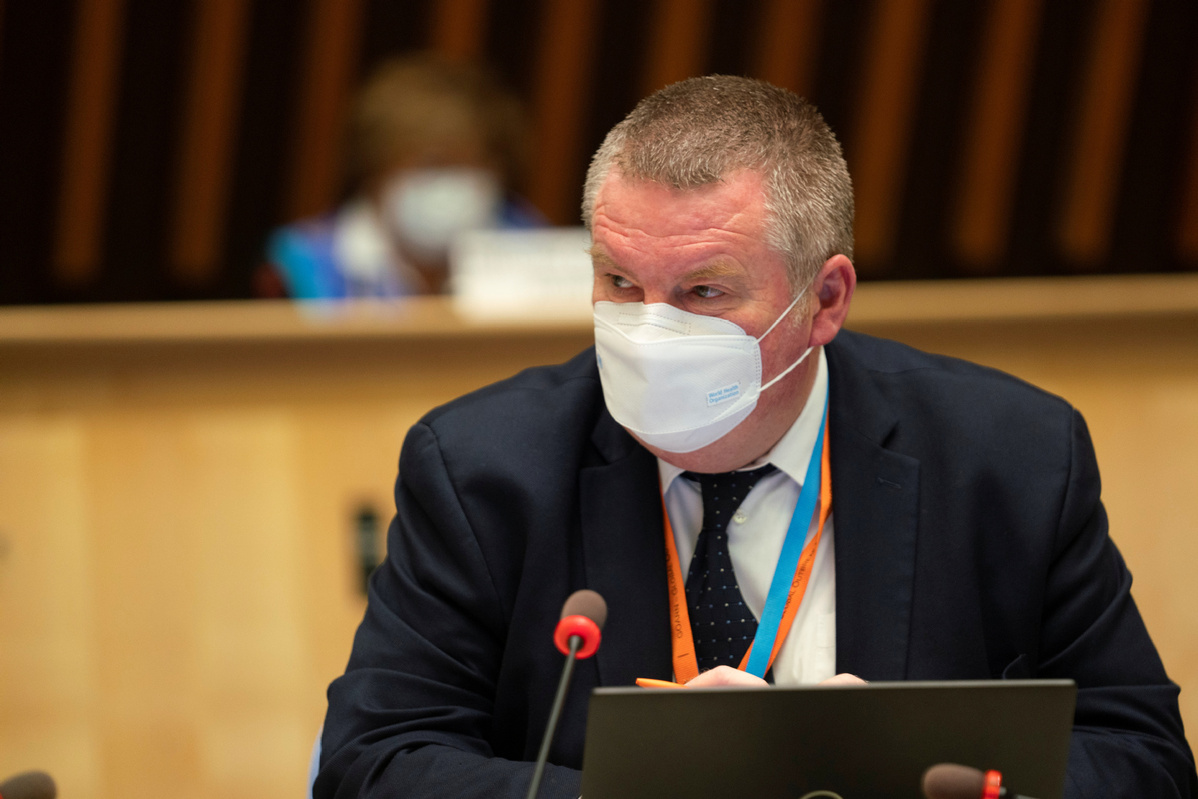Debate on virus origin grows
China Daily Global | Updated: 2020-12-01 10:52

Many questions remain about where the novel coronavirus came from and how it spread so widely and rapidly, despite nearly a year since the world first learned of what causes COVID-19.
But more evidence and academic studies examining the origin of COVID-19 have come out, indicating that the city of Wuhan in Central China, where the first cases were reported in January, should not necessarily be the origin of the virus, according to latest media reports.
Chinese experts have called for the international community to stop politicizing the scientific issue or blaming each other. German virologist Alexander Kekule said on a ZDF media program on Thursday that the virus rampant around the world is not from the provincial capital of Hubei, but a mutation from northern Italy.
Kekule, who is director of the Institute for Biosecurity Research and director of the Institute for Medical Microbiology at Martin Luther University in Halle, Germany, explained that the Italian strain, called the "G" mutant, exhibits genetic mutations, being likely more contagious than the variant found in Wuhan.
More than 99 percent of COVID-19 cases can be genetically traced back to the Italian variant and even the current cases in China are reimported from Europe and the rest of the world, German news agency Weser Courier cited the virologist as saying.
The pandemic starting shot was fired in northern Italy, with Italy's long ignorance of the warnings from China and lack of countermeasures to blame; otherwise the original virus could have been brought under control, according to the expert.
Most researchers think the virus originated in bats, but how it jumped to people is unknown.
A study released by the National Cancer Institute in Milan indicated that the coronavirus may have been circulating in Italy since September 2019, China's Xinhua News Agency reported.
"If true, it would mean that the virus was present in Italy three months before it was first reported in China in December 2019, and five months before the first official case was recorded in Italy on Feb 21," according to Xinhua.
The study published earlier in November in scientific magazine Tumori Journal found coronavirus antibodies in 11.6 percent of 959 asymptomatic people enrolled in a prospective lung cancer screening trial between September 2019 and March 2020.
"Our results indicate that SARS-CoV-2 circulated in Italy earlier than the first official COVID-19 cases were diagnosed in Lombardy, even long before the first official reports from the Chinese authorities, casting new light on the onset and spread of the COVID-19 pandemic," the Italian researchers said in their Nov 11 report, which is yet to be peer reviewed.
The northern region of Lombardy, whose capital is Milan where pandemic instances emerged in late February, had previously reported an unusually high number of cases of severe flu and pneumonia in the last quarter of 2019, in a sign that COVID-19 may have circulated earlier than previously thought, according to Xinhua.
The Canadian Global Television Network's Global News said the new research in Italy adds another layer to the mystery that has so far eluded scientists.
Sasha Bernatsky, senior scientist at the Research Institute of the McGill University Health Centre, called the study "very interesting and provocative", but said it was inconclusive.
"Unfortunately, we have yet to really understand the antibody response to COVID and how durable it is," she told Global News.
Apart from Italy, there have also been other reports about the virus being discovered elsewhere earlier in 2019. Spanish virologists discovered traces of the novel coronavirus in a sample of Barcelona wastewater collected in March 2019, nine months prior to the virus outbreak in China.
In Brazil, a study detected the coronavirus in human sewage in samples collected in November 2019, according to Xinhua.
"This virus lived in animals and at some point passed to humans. It's hard to say when and where this happened. It's being investigated. Viruses can be found in wastewater. But nothing can be said specifically," said Melita Vujnovic, representative of the World Health Organization to Russia, in an interview with Russian news agency RIA Novosti.
Xinhua reported that Tom Jefferson, a scientist at the Centre for Evidence-Based Medicine in the United Kingdom, said the novel coronavirus has existed worldwide and broke out whenever and wherever favorable conditions occurred rather than starting in China.
Michael Ryan, executive director of the WHO's health emergencies program, said at a press conference on Friday that the UN agency has been working with scientists worldwide and the organization will take every detection in France, Spain and Italy very seriously, and will examine each and every one of them.
























